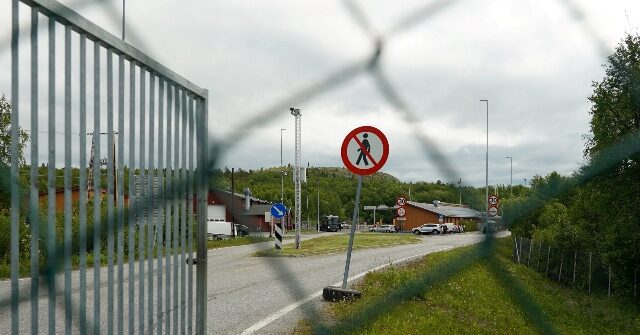Norway is implementing temporary border checks along its frontiers with other Western European nations, a decision rooted in heightened security concerns. This measure comes following the domestic security agency’s advisement to raise the national terror threat level. On October 8, the Norwegian Security Service (PST) announced that the threat level would be increased from “moderate” to “high,” the second-highest rating on a five-tier scale. Police officials indicated that these border checks will remain in effect until October 22, reflecting what they characterized as “a challenging threat picture” facing the nation.
The decision to enhance border security is particularly focused on the elevated risks posed to Jewish and Israeli targets within Norway. This uptick in the threat level has prompted the authorities to take preemptive actions to ensure public safety. Despite Norway’s non-membership in the European Union (EU), it is still part of the Schengen area, which typically allows for passport-free movement across numerous European countries. Norway shares land borders with both EU and Schengen countries, namely Sweden and Finland, making it crucial for the government to address security measures at these key crossings.
Norwegian police have reassured citizens and travelers that while temporary border controls will be established, not all travelers will undergo checks. This strategy aims to mitigate the potential for long delays at border crossings, which can often disrupt transportation and travel plans. By conducting selective checks rather than universal ones, authorities hope to balance security needs without overly burdening everyday travel patterns.
Implementing these border controls is a significant development for Norway, particularly in response to the evolving security landscape. The PST emphasized that the decision was driven by an immediate need to protect vulnerable targets and maintain the safety of its citizens. As extremists and hostile threats have become more prevalent, nations across Europe are grappling with similar challenges, adapting their security protocols accordingly in an effort to prevent potential incidents.
Furthermore, this situation highlights the broader context of national security and the complexities involved in safeguarding citizens amid rising global tensions. Countries like Norway face the challenge of protecting their borders while still fostering a spirit of openness and cooperation with neighboring states. The balance between security and accessibility is particularly sensitive in the context of the Schengen area’s foundational principles, which prioritize the free movement of people across member states.
In conclusion, Norway’s recent decision to enhance border checks amid a high terror threat serves as a reminder of the ongoing security challenges facing the region. The actions taken by the Norwegian government reflect a proactive approach toward ensuring public safety, particularly concerning vulnerable communities. As security agencies continue to monitor and assess the situation, the interplay between national security, freedom of movement, and community safety remains a critical focus for Norway and its European neighbors.

